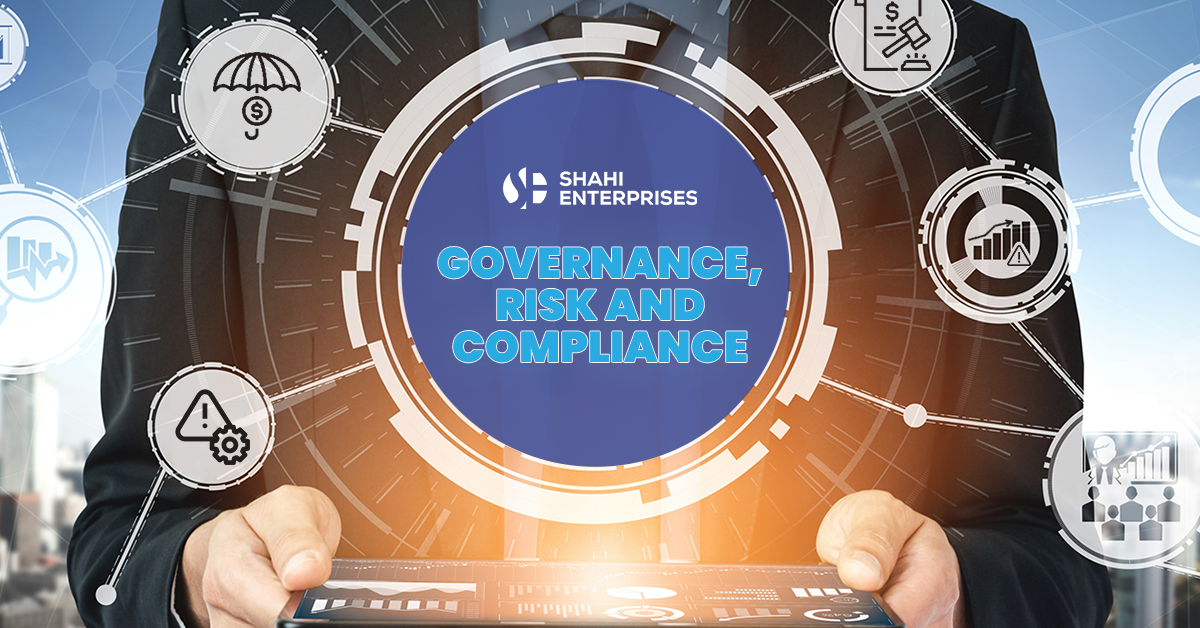Maintaining growth while mitigating and controlling risks is one of the primary goals of running a business of any size. However, seamlessly achieving this, particularly across departments, sectors or branch offices, can be difficult without a proper approach. This is where GRC comes in. The term stands for Governance, Risk, and Compliance, which are 3 aspects of a company’s operation that have always been essential to manage for smooth sailing.
To start with, let’s break each of them down:
What is Governance?
Governance has to do with the structures, policies, and processes of an organisation. It relates to strategic planning, decision making, and accountability across all your operations and locations.
What is Risk?
Risk in this context refers to risk management. Primarily, this pillar focuses on identifying possible risks to your business or any aspect of your operations, as well as the optimal ways of dealing with them.
What is Compliance?
Compliance involves the process of conforming to the laws and regulations of the industry that you work in, as well as how to adhere to them while avoiding legal repercussions and maintaining trust with stakeholders and clients.
How does GRC work?
GRC is an integrated strategy for handling its three components together, since they are intertwined and one can influence the other. Approaching GRC as a single unit is imperative to handling the various interdependent issues that could arise within a company and ensure increased ethical compliance.
What is the importance of GRC?
GRC principles, if implemented correctly, can help an organisation run smoothly and help it better handle the many risks that get in the way of business. Trained GRC professionals play a role in protecting a company’s information and objectives, and can help a firm avoid certain risks and operational and financial damages, whether that is from digital threats and hacking, or business and financial risks, or operational risks.
A survey done on companies and GRC in 2023 showed that GRC budgets and purchasing increased. Specifically:
- 26% of budgets go towards compliance audits,
- 29% towards GRC tools, and
- 24% to staff.
Despite market changes and conditions, GRC remains a top priority, with 64% of companies planning to increase their GRC budget, showcasing its importance.[1]
What are the different types of GRC certification?
Many certifications that aid in managing corporate governance policies, risk management, and regulatory compliance fall under GRC, including:
- ISO 27001: This standard helps you manage cyber threats and data threats and safeguarding your company’s essential information, ensuring data security.
- ISO 22301: This helps you prevent and manages disruption, in addition to maintaining or optimising your business operations, and aiding in legal compliance.
- ISO 20000: This certification is for companies looking to manage IT services more efficiently to achieve their organisational goals.
- ISO 31000: This is a standard that deals with handling comprehensive risk management and providing information to maintain functional continuity.
- ISO 37001: This is important for combating bribery and bribery risks, offering potential protection from legal and financial repercussions.
How to ensure GRC practices within your company
Obtaining proper certification and hiring professionals trained in GRC can help you understand the areas of importance and improvement and unify the approach to changing them. This includes defining common requirements and implementing standardised practices for strategies, training, and certain policies.
When done correctly, GRC can reduce redundant activities and increase effectiveness of efforts and execution.
GRC practices guide your company towards success, resilience, and growth. As the market continues to change, GRC processes and procedures can help maintain stability and adaptability, navigating difficulties and aiding on the journey to success.
As experts in GRC certifications, we have guided numerous companies on how they can obtain the relevant certifications as well as how they can ensure their compliance with the laws, rules, and regulations of whichever industry they are operating in, across local, regional and international markets.
Read more about our GRC Certification services. If you need any assistance, please contact us and one of our expert consultants will set up a meeting with you to take things forward.
Make sure to follow Shahi Enterprises on LinkedIn for further updates and insights.
References:
[1] https://hyperproof.io/resource/purchasing-pattern-trends-in-grc-2023/

